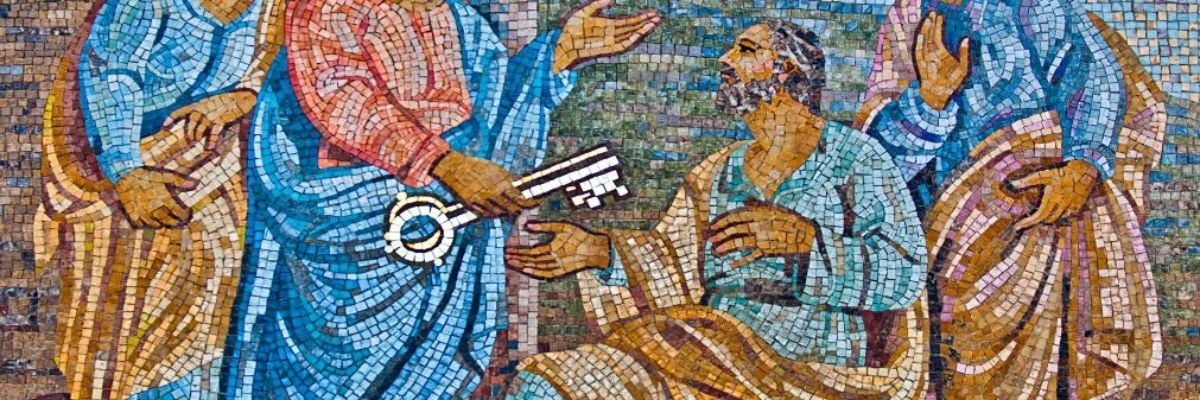
DAY 349
CHALLENGE
“Peter didn’t have any special authority, because Jesus gave the power of binding and loosing to others. This simply refers to the ability to preach the gospel and admit people to the kingdom, as Peter did with Jews on Pentecost (Acts 2) and Gentiles with the household of Cornelius (Acts 10–11).”
DEFENSE
This interpretation does not fit the text or the context.
First, while Jesus gave the power of binding and loosing both to Peter (Matt. 16:19b) and to others (Matt. 18:18), this wasn’t the thing that made Peter unique (cf. CCC 881). In addition to giving him this authority, Jesus gave him the name Peter (“Rock”) and declared him to be the rock on which he would build his Church (Matt. 16:18). He further gave him “the keys of the kingdom of heaven” (Matt. 16:19a), making him a unique leader in the Church (see Day 30). Thus the interpretation does not fit what the text says about Peter, who was singled out as unique.
Second, the interpretation does not fit the context of other New Testament passages, which also indicate Peter had a special role (e.g., Luke 22:31–32, John 21:15; see Days 19 and 276).
Third, the idea that the power of binding and loosing merely refers to preaching the gospel doesn’t fit the text. In Matthew 18, the concept is raised in the context of Church discipline—of disciplining a Christian brother who sins against another Christian (cf. 18:15)—not preaching to the unevangelized.
Fourth, the power to bind and the power to loose are two distinct and opposite abilities. If one were preaching the gospel then the other would be withholding the gospel, and it was not within the purview of the apostles to do that. Peter could not have decided to withhold the gospel from either Jews or Gentiles (Matt. 28:19–20, Acts 1:8).
Fifth, the phrase “bind and loose” was an established Jewish idiom. It referred, among other things, to the ability to forbid and to permit—i.e., to make and abolish rules of conduct (cf. Matt. 23:2–4). Thus Josephus records that during the reign of Queen Alexandra, the Pharisees exercised the power of binding and loosing in Judea (Jew-ish War 1:5:2[110]). It also had reference to the ability to absolve or to refuse to absolve sins (cf. John 20:21–23, CCC 1444).



